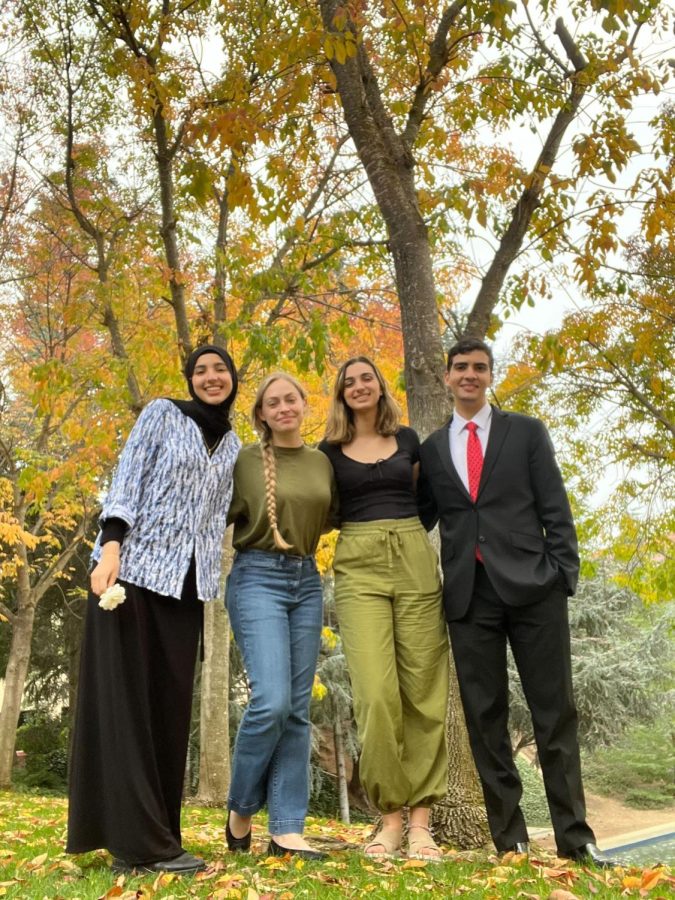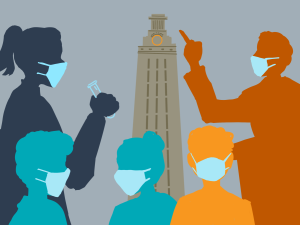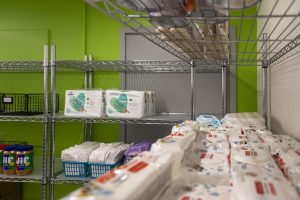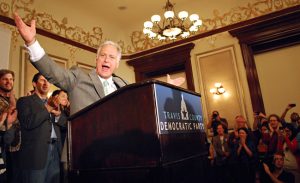UT’s first Arabic debate team attend championship, discuss future
November 9, 2022
UT sent their first team to the U.S. University Arabic Debating Championship at Stanford University on Oct. 14-16. The four students participated in a debate contest held entirely in Arabic over the course of three days.
Riyad Alhomsi, an assistant professor of instruction in Arabic language and the team’s coach, said this is the third championship organized by QatarDebate, the national debating organization for Qatar. The three-day debate tournament involved 40 different teams from 40 U.S. universities. Teams were given topics ranging from ethical, philosophical and political topics.
Alhomsi initially didn’t form a team in 2020 as he wasn’t familiar with the debate’s structure, but began recruiting after serving as a judge in the 2021 championship in Chicago. Alhomsi said he recruited students from his Arabic classes, but fluency in the language was not required.
“The main qualification was looking for students who are willing to engage with this experience,” Alhomsi said.
Mathematics senior Chole Baba said she decided to join the team after Alhomsi approached her.
“(Alhomsi) asked me if I wanted to compete in debate, and I’ve never done any sort of debating before, not even in English,” Baba said. “So I was like, ‘Yeah, sure, why not? Let’s check it out.’”
Yasmeen Hamad, the team’s leader and international relations and global studies sophomore, said Alhomsi tasked her with finding two more teammates in early August. She asked students in her Arabic class and major.
“I scoured everywhere to find people, and we wouldn’t really have a team anywhere else,” said Hamad.
Abdullah Alsawfta, international relations and global studies junior, said Hamad asked him to join as one of the last two members. According to Alsawfta, the team was finally able to come together and begin practices in September, a month before the championship.
Hamad and Alsawfta said they are both heritage speakers, meaning they have some fluency from speaking Arabic at home.
“Your Arabic level honestly doesn’t matter,” Alsawfta said. “You just go in with a great attitude. You’re eager to learn, eager to participate, … you will do fine.”
Baba said the team won one of the three rounds on the first day.
“We had three preliminary rounds against different universities and it was a little nerve-racking, especially since a lot of them were much more fluent in Arabic than our team was,” Baba said.
In the final round, the team won against Rice University, Hamad said.
“(Those on Rice’s team) were all native speakers, which sometimes is intimidating,” Hamad said. “We ended up winning that debate … so that was our proudest moment.”
Alhomsi said he plans on going to the debate championship every year as he believes it promotes the use of the Arabic language and provides student life skills.
“Through this debate, it’s basically teaching these students how to engage, prepare for real life, how to accept others, how to accept differences (and) how to try to understand other points of view that you may not necessarily agree with, but you have to respect that they are there,” Alhomsi said. “All of these are life skills that are some of the core principles embedded in this championship.”
















